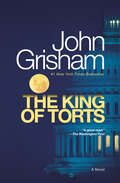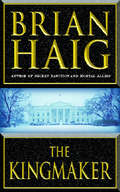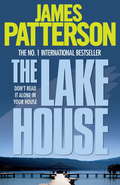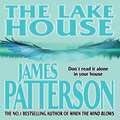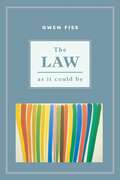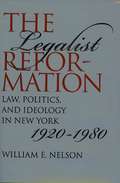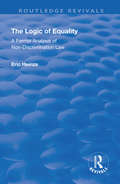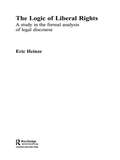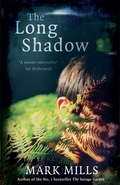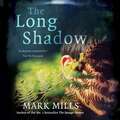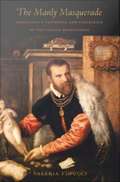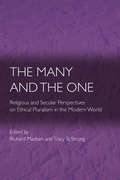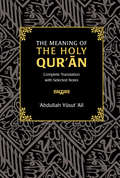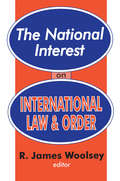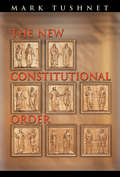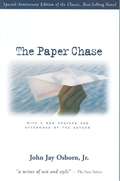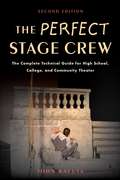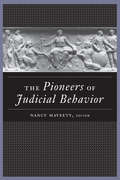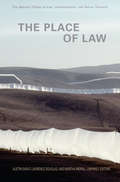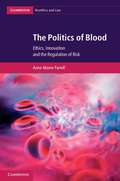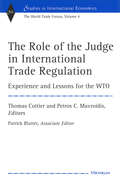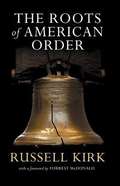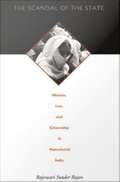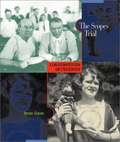- Table View
- List View
The King of Torts: A Novel (Pearson English Graded Readers Ser.)
by John Grisham#1 NEW YORK TIMES BESTSELLER • The office of the public defender is not known as a training ground for bright young litigators. Clay Carter has been there too long and, like most of his colleagues, dreams of a better job in a real firm. When he reluctantly takes the case of a young man charged with a random street killing, he assumes it is just another of the many senseless murders that hit D.C. every week. As he digs into the background of his client, Clay stumbles on a conspiracy too horrible to believe. He suddenly finds himself in the middle of a complex case against one of the largest pharmaceutical companies in the world, looking at the kind of enormous settlement that would totally change his life—that would make him, almost overnight, the legal profession&’s newest king of torts...Don&’t miss John Grisham&’s new book, THE EXCHANGE: AFTER THE FIRM!
The Kingmaker (Sean Drummond Ser. #3)
by Brian HaigIn the worst case of treason in U.S. history, General William Morrison has been charged with an array of crimes. Sean Drummond bulls ahead and comes to suspect that this simple case of treason is actually a chess game being played at the highest levels by the best and brightest--one in which Morrison is merely a pawn.
The Lake House
by James PattersonFrannie O'Neill's life turned upside down when she and FBI maverick Kit Brennan rescued six incredible winged children from the school that created them. Now the young flock wants to go back to the couple, and Frannie and Kit are suing for custody. But when the case involves the most extraordinary creatures ever to land on this earth, someone will ensure there is no happy ending. Only Max, the most remarkable of the children, knows that another, terrifying biological experiment is taking place in the labs of a brilliant but evil surgeon, Dr Ethan Kane. But to complete his experiment he needs the ultimate prize - Max herself. And as the children dream of returning to the happy safety of the lake house, where for a few precious months they flew free, Kane moves ever closer...
The Lake House
by James PattersonFrannie O'Neill's life turned upside down when she and FBI maverick Kit Brennan rescued six incredible winged children from the school that created them. Now the young flock wants to go back to the couple, and Frannie and Kit are suing for custody. But when the case involves the most extraordinary creatures ever to land on this earth, someone will ensure there is no happy ending. Only Max, the most remarkable of the children, knows that another, terrifying biological experiment is taking place in the labs of a brilliant but evil surgeon, Dr Ethan Kane. But to complete his experiment he needs the ultimate prize - Max herself. And as the children dream of returning to the happy safety of the lake house, where for a few precious months they flew free, Kane moves ever closer...(P)2012 Headline Digital
The Law as it Could Be
by Owen FissA collection of the renowned legal scholar&’s most important writings: &“Refreshingly straightforward . . . with vigorous argumentation&” (The Law and Politics Book Review). The author of The Irony of Free Speech and Liberalism Divided, Owen Fiss has written some of the most cited legal studies of the twentieth century. This volume collects his most influential work on procedure, adjudication and public reason. Introduced by the author, it also includes contextual introductions for each piece. Fiss surveys the legal terrain between the landmark cases of Brown v. Board of Education and Bush v. Gore to reclaim the legal legacy of the Civil Rights Movement. He argues forcefully for a vision of judges as instruments of public reason and of the courts as a means of shaping society in the image of the Constitution. In building his argument, Fiss attends to topics as diverse as the use of the injunction to restructure social institutions; how law and economics have misunderstood the role of the judge; why the movement seeking alternatives to adjudication fails to serve the public interest; and why Bush v. Gore was not the constitutional crisis some would have us believe. In so doing, Fiss reveals a vision of adjudication that vindicates the public reason on which Brown v. Board of Education was founded
The Legalist Reformation
by William E. NelsonBased on a detailed examination of New York case law, this pathbreaking book shows how law, politics, and ideology in the state changed in tandem between 1920 and 1980. Early twentieth-century New York was the scene of intense struggle between white, Anglo-Saxon, Protestant upper and middle classes located primarily in the upstate region and the impoverished, mainly Jewish and Roman Catholic, immigrant underclass centered in New York City. Beginning in the 1920s, however, judges such as Benjamin N. Cardozo, Henry J. Friendly, Learned Hand, and Harlan Fiske Stone used law to facilitate the entry of the underclass into the economic and social mainstream and to promote tolerance among all New Yorkers.Ultimately, says William Nelson, a new legal ideology was created. By the late 1930s, New Yorkers had begun to reconceptualize social conflict not along class lines but in terms of the power of majorities and the rights of minorities. In the process, they constructed a new approach to law and politics. Though doctrinal change began to slow by the 1960s, the main ambitions of the legalist reformation--liberty, equality, human dignity, and entrepreneurial opportunity--remain the aspirations of nearly all Americans, and of much of the rest of the world, today. "This splendid book . . . sets a new and very high standard for studies of American legal history in the twentieth century.--American Historical Review"Drawing on a beautifully detailed study of thousands of court opinions and life in New York, William Nelson reveals how twentieth century common law jurists brought together the diverse racial, ethnic, and religious factions in the state.--Harvard Law Review"Nelson's vision is expansive, his research prodigious, his analysis insightful, and his achievement impressive. . . . This fresh research is scholarship of the first order, in itself a major contribution.--Journal of American History"Nowhere is the concept of the law as an evolving, dynamic, and progressive force in modern American society better espoused than in this seminal, exhaustive piece of legal and historical research.--Library JournalBased on a detailed examination of New York case law, The Legalist Reformation traces the efforts of citizens of diverse racial, ethnic, and religious backgrounds to live together in the state during the past century. William Nelson argues that the most powerful instrument facilitating these efforts has been the law of New York--law proclaimed largely by judges such as Benjamin N. Cardozo, Henry J. Friendly, and Learned Hand rather than by legislators or federal officials. Furthermore, the legal ideology outlined by New York jurists has become a standard for justice worldwide among diverse cultures whose people, like New Yorkers, are striving to coexist. -->
The Logic of Equality: A Formal Analysis of Non-Discrimination Law (Routledge Revivals Ser.)
by Eric HeinzeThis title was first published in 2003. The Logic of Equality proposes a formal-logical method for examining the indeterminacy of legal discourse, using the example of the non-discrimination norm. It shows that the indeterminacy of a legal concept does not mean that it is completely chaotic - the indeterminacy of the non-discrimination norm arises out of, and presupposes, a determinate formal structure, which remains fixed and constant both within and across jurisdictions, regardless of institutional or doctrinal differences. To illustrate the argument, cases are presented from a variety of jurisdictions including the United States Supreme Court, the European Court of Human Rights, the European Court of Justice, and the German Constitutional Court. The book is aimed at theorists who are interested in the analysis of legal discourse, including comparative legal scholars and those who specialise in human rights and/or discrimination law.
The Logic of Liberal Rights: A Study in the Formal Analysis of Legal Discourse (Routledge Studies in Twentieth-Century Philosophy #No.14)
by Eric HeinzeThe Logic of Liberal Rights uses basic logic to develop a model of argument presupposed in all disputes about civil rights and liberties. No prior training in logic is required, as each step is explained. This analysis does not merely apply general logic to legal arguments but is also specifically tailored to the issues of civil rights and liberties. It shows that all arguments about civil rights and liberties presuppose one fixed structure and that there can be no original argument in rights disputes, except within the confines of that structure. Concepts arising in disputes about rights, like 'liberal' or 'democratic', are not mere abstractions but have a fixed and precise character.This book integrates themes in legal theory, political science and moral philosophy, as well as the philosophy of logic and language. For the advanced scholar, the book provides a model presupposed by leading theoretical schools (liberal and critical, positivist and naturalist). For the student it provides a systematic theory of civil rights and liberties. Examples are drawn from the European Convention in Human Rights but no special knowledge of the Convention is assumed, as the issues analysed arise throughout the world. Such issues include problems of free speech, religious freedom, privacy, torture, unlawful detention and private property.
The Long Shadow
by Mark MillsFrom Mark Mills, author of the award-winning THE SAVAGE GARDEN comes THE LONG SHADOW, a first-class thriller in the vein of Robert Harris and William Boyd. Blood brothers or sworn enemies? You never forget what the fight was about... THE LONG SHADOW is a stunning depiction of resentment and revenge.Ben Makepeace has barely thought of Jacob since school. What he remembers is a competitive, manipulative boy, impinging on his life. Now Ben is the wrong side of forty with a young son to support and in need of a backer. A call to meet hedge-fund billionaire Victor Sheldon is promising, but there's a surprise in store - Victor is Jacob, now firmly entrenched in a gilded world of riches and glamour. History can cast a long shadow and while Ben believes his childhood is well over, he soon discovers the roots of the past dig deep.
The Long Shadow
by Mark MillsBen Makepeace has barely thought of Jacob since school. What he remembers is a competitive, manipulative boy, impinging on his life like a cuckoo planted in a nest. Now Ben is the wrong side of forty with a young son to support and in need of a backer to bankroll his latest film script. A call to meet hedge-fund billionaire Victor Sheldon is promising, but there's a surprise in store - Victor is Jacob, now firmly entrenched in a gilded world of riches and glamour.History can cast a long shadow and while Ben believes his childhood is well over, he soon discovers the roots of the past dig deep, and some can't let it go.(P)2013 Headline Digital
The Manly Masquerade: Masculinity, Paternity, and Castration in the Italian Renaissance
by Valeria FinucciThe Manly Masquerade unravels the complex ways men were defined as men in Renaissance Italy through readings of a vast array of sixteenth- and seventeenth-century evidence: medical and travel literature; theology; law; myth; conduct books; and plays, chivalric romances, and novellas by authors including Machiavelli, Tasso, and Ariosto. Valeria Finucci shows how ideas of masculinity were formed in the midst of acute anxiety about paternity by highlighting the beliefs--widely held at the time--that conception could occur without a paternal imprimatur or through a woman's encounter with an animal, or even that a pregnant woman's imagination could erase the father's "signature" from the fetus. Against these visions of reproduction gone awry, Finucci looks at how concepts of masculinity were tied to issues of paternity through social standing, legal matters, and inheritance practices. Highlighting the fissures running through Italian Renaissance ideas of manliness, Finucci describes how, alongside pervasive images of the virile, sexually active man, early modern Italian culture recognized the existence of hermaphrodites and started to experiment with a new kind of sexuality by manufacturing a non-man: the castrato. Following the creation of castrati, the Church forbade the marriage of all non-procreative men, and, in this move, Finucci identifies a powerful legitimation of the view that what makes men is not the possession of male organs or the ability to have sex, but the capability to father. Through analysis, anecdote, and rich cultural description, The Manly Masquerade exposes the "real" early modern man: the paterfamilias.
The Many and the One: Religious and Secular Perspectives on Ethical Pluralism in the Modern World (Ethikon Series in Comparative Ethics)
by Richard Madsen & Tracy B. StrongThe war on terrorism, say America's leaders, is a war of Good versus Evil. But in the minds of the perpetrators, the September 11 attacks on New York and Washington were presumably justified as ethically good acts against American evil. Is such polarization leading to a violent "clash of civilizations" or can differences between ethical systems be reconciled through rational dialogue? This book provides an extraordinary resource for thinking clearly about the diverse ways in which humans see good and evil. In nine essays and responses, leading thinkers ask how ethical pluralism can be understood by classical liberalism, liberal-egalitarianism, critical theory, feminism, natural law, Confucianism, Islam, Judaism, and Christianity. Each essay addresses five questions: Is the ideal society ethically uniform or diverse? Should the state protect, ban, or otherwise intervene in ethically based differences? How should disagreements on the rights and duties of citizens be dealt with? Should the state regulate life-and-death decisions such as euthanasia? To what extent should conflicting views on sexual relationships be accommodated? This book shows that contentious questions can be discussed with both incisiveness and civility. The editors provide the introduction and Donald Moon, the conclusion. The contributors are Brian Barry, Joseph Boyle, Simone Chambers, Joseph Chan, Christine Di Stefano, Dale F. Eickelman, Menachem Fisch, William Galston, John Haldane, Chandran Kukathas, David Little, Muhammad Khalid Masud, Carole Pateman, William F. Scheuerman, Adam B. Seligman, James W. Skillen, James Tully, and Lee H. Yearley.
The Meaning of the Holy Qur'an
by Abdullah Yusuf AliThis is a compact and revised edition of Abdullah Yusuf Ali's translation of The Meaning of the Holy Qur'an in modern English. It contains complete translation of the Qur'anic text and retains essential notes of Abdullah Yusuf Ali's exhaustive commentary on the Qur'an, which enables the reader to gain a better understanding of the meaning and message of the Qur'an.
The Myth of the Imperial Judiciary: Why the Right is Wrong About the Courts
by Mark KozlowskiAnalysis of judicial activity.
The National Interest on International Law and Order
by R. James WoolseyInternational law and the nature of the global order is regularly examined and debated among specialists. This volume brings together in one place twenty-four articles addressing these subjects, written by some of America's leading academics, lawyers, and policymakers, and originally published in The National Interest, a leading realist journal of international affairs.Prominent jurists, lawyers, and practitioners debate the role that international law should play in the formulation of policy in the first section, and whether 'international law' really exists. Authors explore such questions as the enforceable norms of global behavior, and if American foreign policy should conform to such regulations. A second section looks at the viability and utility of international institutions in advancing U.S. interests. Included are debates over the role and purpose of the United Nations and the International Criminal Court. A third Section deals with the intersection of law enforcement and foreign policy. It explores such questions as whether primary responsibility for combating global terrorism and the international drug trade should be vested with law enforcement agencies or whether it should fall under the purview of foreign policy.The final portion of the book is devoted to the question of human rights, particularly the tripartite debate between Robin Fox, Francis Fukuyama, and William F. Schulz over the nature and origins of human rights. Among the questions considered are whether human rights are an outgrowth of natural law, or are natural imperatives at odds with protecting individual dignities and freedoms. Is there a universal standard of rights, or are human rights norms derived from majority consensus?The list of distinguished contributors to this volume include John Bolton, Robert Bork, Lee Casey, Douglas Feith, Owen Harries, Senator Jesse Helms, Alan Keyes, Irving Kristol, Joseph Nye, Jeremy Rabkin, David Rivkin, Alfred P. Rubin, and Abrahama Sofaer. This volume will be of interest to legal scholars, political scientists, and students of diplomacy and international relations.
The New Constitutional Order
by Mark TushnetIn his 1996 State of the Union Address, President Bill Clinton announced that the "age of big government is over." Some Republicans accused him of cynically appropriating their themes, while many Democrats thought he was betraying the principles of the New Deal and the Great Society. Mark Tushnet argues that Clinton was stating an observed fact: the emergence of a new constitutional order in which the aspiration to achieve justice directly through law has been substantially chastened. Tushnet argues that the constitutional arrangements that prevailed in the United States from the 1930s to the 1990s have ended. We are now in a new constitutional order--one characterized by divided government, ideologically organized parties, and subdued constitutional ambition. Contrary to arguments that describe a threatened return to a pre-New Deal constitutional order, however, this book presents evidence that our current regime's animating principle is not the old belief that government cannot solve any problems but rather that government cannot solve any more problems. Tushnet examines the institutional arrangements that support the new constitutional order as well as Supreme Court decisions that reflect it. He also considers recent developments in constitutional scholarship, focusing on the idea of minimalism as appropriate to a regime with chastened ambitions. Tushnet discusses what we know so far about the impact of globalization on domestic constitutional law, particularly in the areas of international human rights and federalism. He concludes with predictions about the type of regulation we can expect from the new order. This is a major new analysis of the constitutional arrangements in the United States. Though it will not be received without controversy, it offers real explanatory and predictive power and provides important insights to both legal theorists and political scientists.
The Paper Chase (Anniversary Edition)
by John Jay Osborn Jr.When initially published, The Paper Chase was widely acclaimed as the first novel to realistically describe the experiences of students within American law schools. The film version appeared to sensational reviews, and John Houseman, playing Professor Kingsfield won an Academy Award. Then, with Houseman again playing Kingsfield, The Paper Chase appeared as a television series on CBS. After that, the series in its entirety was re-run as a special on PBS, the first time a commercial American television series had been re-broadcast on public television. Subsequently, The Paper Chase television series was taken over by the cable network Showtime, which continued to produce new episodes. Every year, a theatrical play version of The Paper Chase is produced in regional theatres and schools across the United States. In its many incarnations, The Paper Chase has been one of the most influential books of its generation and has defined law school for millions of Americans.
The Perfect Stage Crew: The Complete Technical Guide for High School, College, and Community Theater
by John KalutaHere is a must-have book for anyone producing a stage show without a Broadway-sized budget. Written by a technical theater veteran, The Perfect Stage Crew explains the pitfalls to avoid and provides solutions to the most common-and the most complex-stage performance problems, even for theaters with a lack of resources. An invaluable guide for middle and high school theaters, college theaters, and community theaters, The Perfect Stage Crew teaches readers how to:Stock, organize, and store the essential backstage suppliesConceptualize, design, and build setsManage a stage crew effectivelyPaint scenery and backdropsTest, design, and hang lightingOperate and repair sound equipmentSet cuesPromote your showThis expanded second edition covers up-to-date technology, including for use with recording, sound, and lighting. Chapters also cover such crucial topics as running technical rehearsals, gathering props, and creating and selling tickets. Theater groups that need to learn the nuts and bolts of putting a show together will discover how to turn backstage workers into The Perfect Stage Crew.Allworth Press, an imprint of Skyhorse Publishing, publishes a broad range of books on the visual and performing arts, with emphasis on the business of art. Our titles cover subjects such as graphic design, theater, branding, fine art, photography, interior design, writing, acting, film, how to start careers, business and legal forms, business practices, and more. While we don't aspire to publish a New York Times bestseller or a national bestseller, we are deeply committed to quality books that help creative professionals succeed and thrive. We often publish in areas overlooked by other publishers and welcome the author whose expertise can help our audience of readers.
The Pioneers of Judicial Behavior
by Nancy MaveetyIn The Pioneers of Judicial Behavior, prominent political scientists critically examine the contributions to the field of public law of the pioneering scholars of judicial behavior: C. Hermann Pritchett, Glendon Schubert, S. Sidney Ulmer, Harold J. Spaeth, Joseph Tanenhaus, Beverly Blair Cook, Walter F. Murphy, J. Woodward Howard, David J. Danelski, David Rohde, Edward S. Corwin, Alpheus Thomas Mason, Robert G. McCloskey, Robert A. Dahl, and Martin Shapiro. Unlike past studies that have traced the emergence and growth of the field of judicial studies, The Pioneers of Judicial Behavior accounts for the emergence and exploration of three current theoretical approaches to the study of judicial behavior--attitudinal, strategic, and historical-institutionalist--and shows how the research of these foundational scholars has contributed to contemporary debates about how to conceptualize judges as policy makers. Chapters utilize correspondence of and interviews with some early scholars, and provide a format to connect the concerns and controversies of the first political scientists of law and courts to contemporary challenges and methodological debates among today's judicial scholars. The volume's purpose in looking back is to look forward: to contribute to an ecumenical research agenda on judicial decision making, and, ultimately, to the generation of a unified, general theory of judicial behavior. The Pioneers of Judicial Behavior will be of interest to graduate students in the law and courts field, political scientists interested in the philosophy of social science and the history of the discipline, legal practitioners and researchers, and political commentators interested in academic theorizing about public policy making.
The Place of Law
by Austin Sarat Lawrence Douglas Martha Merrill UmphreyIt has long been standard practice in legal studies to identify the place of law within the social order. And yet, as The Place of Law suggests, the meaning of the concept of "the place of law" is not self-evident. This book helps us see how the law defines territory and attempts to keep things in place; it shows how law can be, and is, used to create particular kinds of places -- differentiating, for example, individual property from public land. And it looks at place as a metaphor that organizes the way we see the world. This important new book urges us to ask about the usefulness of metaphors of place in the design of legal regulation.
The Politics of Blood
by Anne-Maree FarrellHow best to manage risk involving multi-valued human biological materials is the overarching theme of this book, which draws on the sourcing and supply of blood as a case study. Blood has ethical, social, scientific and commercial value. This multi-valuing process presents challenges in terms of managing risk, therefore making it ultimately a matter for political responsibility. This is highlighted through an examination of the circumstances that led to HIV blood contamination episodes in the US, England and France, as well as their consequences. The roles of scientific expertise and innovation in managing risks to the blood system are also analysed, as is the increased use of precautionary and legal strategies in the post-HIV blood contamination era. Finally, consideration is given to a range of policy and legal strategies that should underpin effective risk governance involving multi-valued human biological materials.
The Role of the Judge in International Trade Regulation: Experience and Lessons for the WTO
by Thomas Cottier Petros Constantinos Mavroidis Patrick BlatterThe WTO is generally seen as a key actor of globalization and, as such, has been the point of convergence of popular irritation worldwide. Many of the reproaches addressed to the WTO show civil societys concern with what is perceived as a democratic deficit in the way the organization operates. The main fear is to see trade rise as the ultimate value, prevailing over concerns such as health and environment. The Role of the Judge offers insight into how disputes are solved at the WTO level, into how the judicial branch interacts with the rest of the organization, and into the degree of sensitivity of the system to external input. The book sheds light on the judicial system governing the WTO and shows it to be the only truly multilateral system where disputes are solved by third-party adjudication. The book develops along three lines: the first a search for cases submitted to the WTO where the judge exceeded its authority; the second a comparison of the WTO with the operations of national judicial systems having different levels of integration, specifically the United States (federal level) and the EC (quasi-federal level); and the third an exploration of directions for the future of dispute settlement in the WTO. Reflecting the diversity of its contributors, this book addresses questions of economics, political science, and law, bringing an unusual level of multidisciplinarity to this topic and context. It is designed for both academic readers and practitioners, who will find it full of practical insights as well as rich and detailed analysis.
The Roots of American Order
by Russell KirkFirst published in 1974, this work was written by conservative thinker Kirk "to assist in renewing an appreciation of America's moral and social order among the general public and among university and college students." Surveying history from the Judaic prophets to the presidency of Abraham Lincoln, he presents a story of American civilization as it arose from the Judeo-Christian traditions, Greek and Roman antiquity, the rise of English common law and the English Constitution, the writings of British political philosophers, and the attendees of the U.S. Constitutional Congress. Annotation ©2004 Book News, Inc., Portland, OR (booknews.com)
The Scandal of the State: Women, Law, and Citizenship in Postcolonial India
by Rajeswari Sunder RajanThe Scandal of the State is a revealing study of the relationship between the postcolonial, democratic Indian nation-state and Indian women's actual needs and lives. Well-known for her work combining feminist theory and postcolonial studies, Rajeswari Sunder Rajan shows how the state is central to understanding women's identities and how, reciprocally, women and "women's issues" affect the state's role and function. She argues that in India law and citizenship define for women not only the scope of political rights but also cultural identity and everyday life. Sunder Rajan delineates the postcolonial state in implicit contrast with the "enlightened," postfeminist neoliberal state in the West. Her analysis wrestles with complex social realities, taking into account the influence of age, ethnicity, religion, and class on individual and group identities as well as the shifting, heterogeneous nature of the state itself. The Scandal of the State develops through a series of compelling case studies, each of which centers around an incident exposing the contradictory position of the Indian state vis--vis its female citizens and, ultimately, the inadequacy of its commitment to women's rights. Sunder Rajan focuses on the custody battle over a Muslim child bride, the compulsory sterilization of mentally retarded women in state institutional care, female infanticide in Tamilnadu, prostitution as labor rather than crime, and the surrender of the female outlaw Phoolan Devi. She also looks at the ways the Uniform Civil Code presented many women with a stark choice between allegiance to their religion and community or the secular assertion of individual rights. Rich with theoretical acumen and activist passion, The Scandal of the State is a powerful critique of the mutual dependence of women and the state on one another in the specific context of a postcolonial modernity.
The Scopes Trial (Cornerstones of Freedom, 2nd Series)
by Renee GravesA description of the historic 1925 trial in which a Tennessee high school biology teacher was accused of violating state law by teaching Darwin's theory of evolution.
